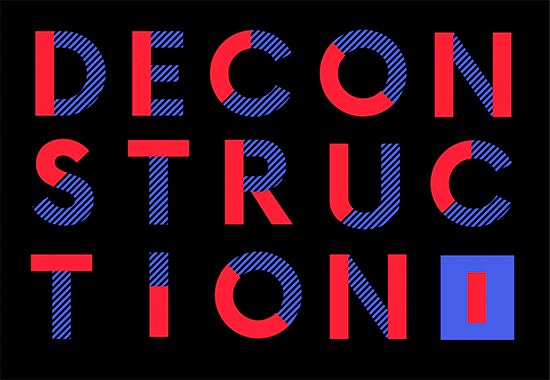
October-November 2022
Looking Back...
Looking Forward
------------------
|





Being Constructive About Deconstruction
By Chris Talbot
I have had plenty of reasons to walk away from the faith, or really, never to have begun it. If you will excuse a personal account, I grew up in a household that did not put an emphasis on Christianity and the truth of Scripture. My family went to church occasionally, but whatever commitment to the faith we displayed by attending church on Sunday was often neglected the following Monday.
So, when I heard the gospel and confessed Christ as a teenager, I found myself working against the grain of not only my family but also my friends. Many around me found Christianity too exclusive, too old, too supernatural, or too boring. Yet I found it embracing, relevant, powerful, and compelling. Though I knew Christianity to be these things, I did not always have the words to articulate my newly-found, vibrant, and growing faith.
As I grew in my faith, I heard stories of people having the exact opposite experience I did. As I found more reasons to believe and dive deeper, I started to hear declarations of those who had “deconstructed” their faith. Stories of deconstruction seem to be everywhere these days. Popular YouTubers Rhett and Link, author and former pastor Joshua Harris, speaker and blogger Jen Hatmaker—the list goes on.
With each passing year, more well-known (and not so well-known) Christians are forsaking the faith they once held dear. Some who have deconstructed still claim the title “Christian” in some sense, but more often they become agnostics, not knowing what to believe. The list of “exvangelicals” has become long, and the troubling trend is unlikely to slow anytime soon.
Defining Terms
Anytime we enter the fray, we must define our words clearly. The word deconstruction, like other popular buzzwords, has the perplexing ability to mean just about anything. The semantic domain seems to be a Rorschach test, saying more about its user than an objective idea. In philosophy courses, one idea generally reigns supreme: you must clarify your terms. It is fine to discuss ideas, terms, etc., but one must be clear on what he or she means when using a term. To be sure, those who use the term deconstruction would benefit from such an admonition.
In my own engagement with this term, I have generally found three usages: 1) a form of Derridian deconstruction; 2) a push to release Christianity from kinds of cultural baggage; and 3) a move toward affirming doubts regarding orthodox Christianity. We will deal with each of these individually.
First is the “deconstruction” of Jacques Derrida, a post-structuralist and postmodern philosopher. Derrida was probably most well-known for his process of engaging with texts and meaning he referred to as “deconstruction.” Derrida resourced Martin Heidegger. Though oversimplified, Heidegger (like George F. Hegel before him) sought to synthesize two opposing ideas (thesis and antithesis) into a new concept (the synthesis). Unlike Heidegger, Derrida was not looking for a dialectical approach that would result in some sort of synthesis. Derrida was not really interested in method or analysis or critique. Instead, his philosophy was more an axe laid to the root of ideas.
Derrida rejected Plato’s concepts of true forms and essences—those concepts that transcend time and space, and the fundamental definitions of what things are. Derrida believed we should engage with meaning, but not construct it. Instead, he admonished readers to challenge, confront, and ultimately—no surprise—deconstruct the meaning. As you can see, this approach is ultimately subversive. While some people in evangelicalism and the broader Christian context may have this background in mind regarding deconstruction, I do not consider it the most common use of the term.
Second, some argue for deconstruction to release Christianity from perceived “cultural baggage.” Broadly speaking, these people seek to clarify the essence of Christianity and remove unfortunate cultural attachments. A subscriber to this view would argue a particular “form” of Christianity has become too captivated by its parent culture and needs to be deconstructed to reveal what is and what is not part of faithfully expressed Christianity.
Third, others use the term deconstruction to describe genuine rejection of orthodox Christianity. Those who employ this term would say “X” doctrine consistent with the historic Christian position is not a position with which they agree. Therefore, they reject either that doctrine or the entirety of Christianity. Probably most prominent in these discussions are the topics of gender and sexuality. In a culture where the emphasis is placed on personal autonomy and happiness, the historic Christian positions on gender and sexuality have caused many to reject these positions outright.
These three uses are not always exclusive, especially when individuals do not clarify how they are using their terms. Instead, the lines can easily blur between categories, and it can be incredibly difficult to untangle. For example, those seeking to reject or remove parts of orthodox Christianity may also be responding with an intentionally subversive Derrida hermeneutic. Or those seeking to remove cultural add-ons may inadvertently challenge historic Christian positions. The confusion between these categories seems to be at the heart of all the unconstructive debate about deconstruction. Thus, we have more reason for Christians to be clear and truthful in these conversations.
Dealing With Doubt
Now that we have examined these three uses, we may ask how we engage with the topic of deconstructionism overall and with those engaging in a process of deconstruction. Of course, this question is monumental, one that probably needs a book rather than a brief article. That said, I offer some profitable steps forward.
As Christians, we are admonished to do all things in love. Moreover, we are to speak the truth in love (Ephesians 4:15). Too often we speak the truth with harsh tones and judgmental declarations. But this is not the way of Christ. Or, conversely, we accommodate the zeitgeist by simply privatizing our faith and failing to express it rightly as true Kingdom followers. This is not the way of Christ, either.
Instead, we must hold to orthodoxy and orthopraxy with a zeal for the truth and a heart full of compassion. The biblical commitment to both right teaching and right living should shape our conversations on any topic and certainly orient our hearts and minds as we meet with individuals.
The first question I ask someone is what they mean by deconstruction. This helps me know where to start a conversation. “What kind of deconstruction am I engaging with?”
The rest of this article pertains to the latter two definitions of deconstruction. First, some in the United States are concerned about the cultural captivity of Christianity across the theological spectrum. Individuals are worried that much of Christianity has become too consumeristic, too anti-intellectual, too sentimental, too ethno-centric, too narrow, too repressive, etc. Each of these critiques would need to be considered on its own merit, but Christianity clearly can become too culturally captive. It has happened plenty of times before and certainly will happen again.
We must remember Christianity is not expressed in a vacuum. Certainly, the fundamentals of Christianity are true across all time and space. Yet, we express our faith in a particular time and place. That is why—at least at my local church—we pray, sing, read, testify, and hear the sermon preached in English. Even more, our pastor seeks to apply the sermon specifically to the lives of our congregants. Thus, while we should seek to challenge cultural accommodation, we also need to realize that any given Christian lives within a cultural context. The pursuit of true Christianity is a rightful one. The pursuit of Christianity absent of a culture is impossible.
What about those who seek not to find genuine Christianity but to reject all or parts of? We must be abundantly clear on what constitutes true Christianity. The problem is we can be notoriously bad at determining the importance of a doctrine. For this reason, Christians should seek to employ basic theological triage. We must be clear about the distinction between the “fundamentals” of the faith and secondary and tertiary issues. For example, those who reject the divinity of Christ clearly have abandoned the essence of Christianity. However, if they challenge theories on eschatology, they have more freedom.
Undoubtedly, these examples are rather easy. For this reason, we should recognize the Church broadly has held strong doctrinal positions on culturally tenuous positions relating to sexuality, gender, and more. If an individual stands at odds with two millennium of Christian belief, he or she is most likely not on the side of truth. We might also consult the creeds and confessions of the early church to understand whether we (and deconstructionists) stand in solidarity with the historic beliefs of Christianity.
Generally, I do not find the term deconstruction to be useful. If someone is engaging in theological reflection that rejects cultural accommodation or orthodox theological doctrines, deconstruction does not seem to be a helpful term. It is so easily confused with the Derridean term, and one can quickly assume those individuals are engaging in a seditious philosophical approach that leads to and embraces a postmodern worldview. Yes, they very well might be, but not always.
I encourage individuals to be clear, to be helpful and truthful in labeling their thought for what it is. Are you rejecting biblical Christianity? Call it what it is. Are you wanting to clarify the heart of biblical Christianity amid its cultural expression? Pursue clarity.
But remember, as Christians, we pursue clarity and charity—not apart from one another but in tandem.
About the Author: Chris Talbot, a native of Tecumseh, Michigan, now resides in Gallatin, Tennessee, with his wife Rebekah and their three sons, William, James Elliot, and Samuel. He serves as youth and family ministry program coordinator and campus pastor at Welch College. This article has been adapted by permission from the Helwys Society Forum: TheHSF.com.
|
|

